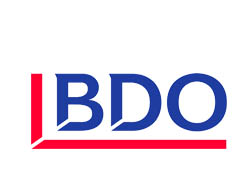How to manage and recover from work-related stress
Research commissioned by Mind, the UK’s leading mental health charity, found that work is the most stressful factor in people’s lives. More than one in three said their work life was either very or quite stressful.
Work-related stress experienced over a long period of time can lead to physical, mental, and emotional exhaustion, which is commonly known as burnout.
April is Stress Awareness Month, and this year’s campaign focuses on how even the smallest steps towards stress reduction can yield improvements in mental health. It is critical to be aware of the warning signs and make manageable adjustments as soon as you spot them.
5 steps to manage and prevent burnout
- Break things down: if your workload starts to feel overwhelming, it can often help to break down big jobs into more manageable tasks so you can achieve a series of specific goals.
- Learn to delegate: knowing what and when to delegate is often essential to prevent burnout.
- Take regular breaks and try to limit working after hours: if you’re very busy at work, it can be tempting to skip lunch or work late, but if this becomes a regular occurrence, you increase the risk of burnout.
- Set boundaries: taking on too many commitments can quickly lead to feeling overwhelmed, so set limits on the time you can give to others to prevent burnout proactively.
- Embrace self-care: when you’re stressed, it’s easy to fall into bad habits and stop looking after yourself. Exercising regularly, eating healthily, and prioritising sleep are all important for reducing mood swings, improving focus, and boosting your sense of well-being so you can cope with work-related stress.
How employers can support their employees
Work-related stress can significantly impact an employee’s performance and relationships with colleagues. It’s also a significant cause of long-term absenteeism.
“Burnout is an issue we’re increasingly seeing, and over the last 12 months, we’ve seen several employees signed off with burnout due to the chronic workplace stress that has not been successfully managed,” Dr Caroline Wall explains.
Ideally, employers should approach work-related stress proactively and focus on prevention and early intervention rather than responding to a situation that has affected performance or resulted in short- or long-term absence.
Approaches can include:
- Flexible working options
- Stress risk assessments
- Reduce or eliminate sources of stress based on these assessments
- Training for line managers
- Stress management training for the whole workforce
- Increase support during periods of change or uncertainty
For more advice on how occupational health can help prevent and manage work-related stress, call +44 (0)20 4580 1152 to arrange a discussion with one of our team.









